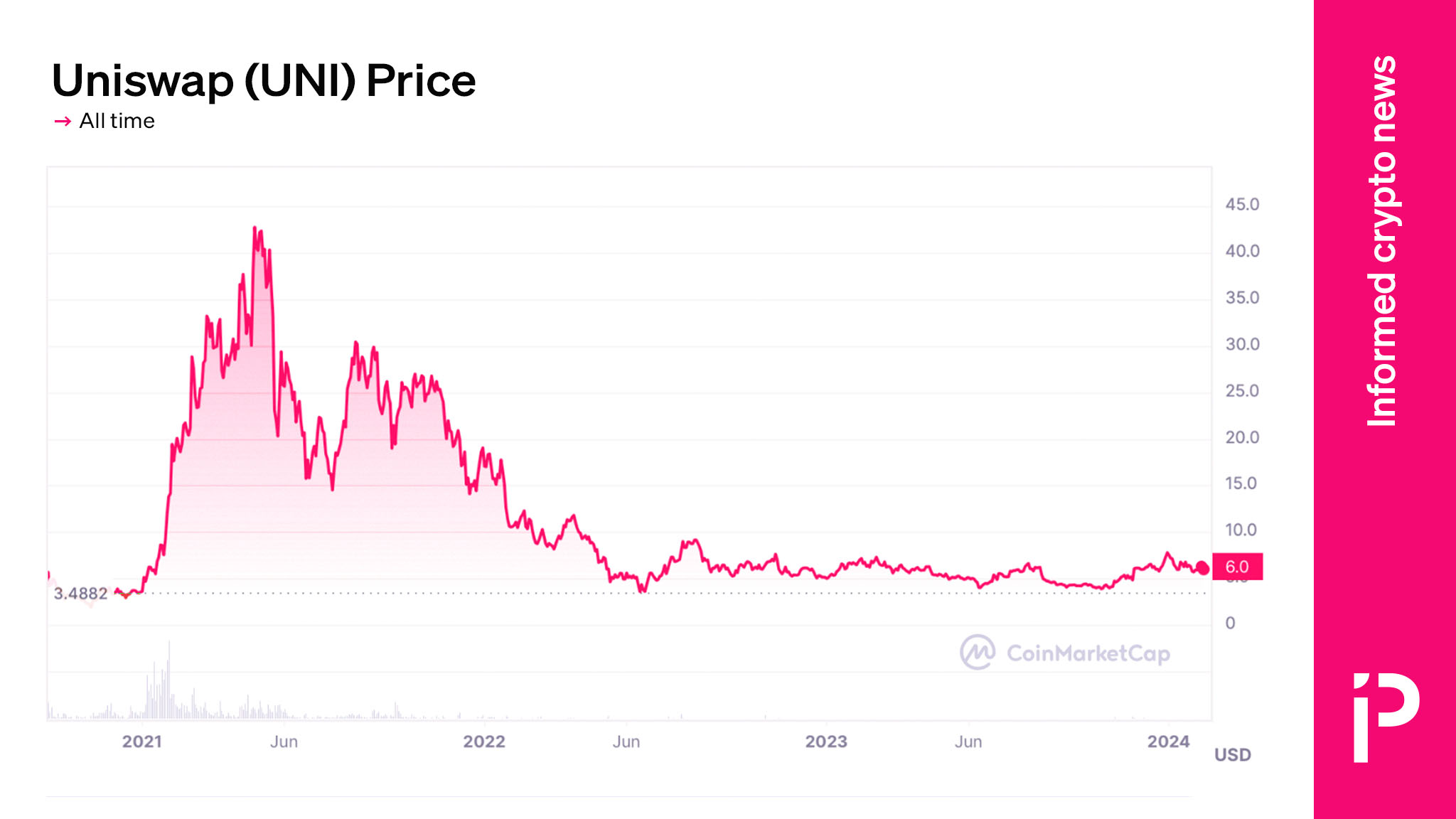
Hayden Adams’ token swap service Uniswap claims to be a decentralized finance (DeFi) protocol, where holders of its UNI governance token can cast controlling votes on upgrades and changes. However, as with most self-described DeFi protocols, Uniswap utilizes quite a few decentralization theatrics.
For years, Uniswap boasted its open-sourcing efforts. The Ethereum Foundation even provided initial funding to Uniswap for its free and open source software (FOSS) initiatives.
Nowadays, Uniswap enlists a team of brand protection workers to send cease and desist letters, threatening to sue users of its technologies. For example, one observer claims that its team mails legal takedown notices to InterPlanetary File System (IPFS) gateway operators who host forks of its token exchange. IPFS is a peer-to-peer data storage network without a central server.
For much of its history, Uniswap has reigned as the world’s most popular DEX. Since its inception, it has processed trillions of dollars in transactions. It currently boasts $4 billion in total value locked and a $6.2 fully diluted valuation.
UNI: Uniswap’s afterthought
For years, Uniswap operated without any proprietary token. In September 2020, however, it launched the now-$4 billion UNI with generous allocations to insiders and venture capitalists like a16z.
At the time of its UNI token issuance, it was the most liquid exchange to swap tokens in a non-custodial manner. Today, the recently launched, Solana-based Jupiter outranks it.
Uniswap touts open-source, decentralization, etc. values (and was founded based on a FOSS grant from the EF) but popularized BSL and maintains an army of vicious IP lawyers who go after even compliant uses of the small fraction of their stuff that is still open-source. https://t.co/43ADzIHbP7
— _gabrielShapir0 (@lex_node) February 2, 2024
Read more: Jupiter’s massive insider allocation of Solana airdrop JUP
Previously, Protos has covered Uniswap insiders overlooking UNI tokenholders’ wishes. This included their implementation of a 0.15% fee on popular trading pairs that Uniswap Labs founder Hayden Adams confusingly claimed was separate from another fee switch. Importantly, his addition of that new fee bypassed governance token holders’ financial interests.
Consider another example. In response to a US regulatory suggestion, Uniswap quickly delisted 100 tokens from the user interface on its website. This move, of course, sparked controversy due to the lack of a governance vote.
Uniswap also tried to court traditional finance companies like PayPal and Stripe without UNI tokenholder approval.

Companies cast the vote
Big tokenholders also sway voting on any Uniswap proposal. Andreessen Horowitz (a16z) once held enough tokens to control any vote. A16z still lists Uniswap in its current investment portfolio.
Similarly, Binance once held massive quantities of UNI. In a moment of goodwill, it swore never to utilize its customers’ UNI tokens to vote on proposals.
Even when a proposal passes all rounds of discussion and voting, Uniswap developers might still need to actually implement it. For example, insiders once delayed the implementation of a switch fee long after it gained overwhelming approval from UNI tokenholders.
remember uniswap fee switch proposal?
it has passed the discussion, the temperature check, the consensus check with 100% in favor, and then… crickets.
the community got fucked again lmao
— banteg (@bantg) August 15, 2022
Read more: Why does a16z want to strengthen its grip on Uniswap?
Three years and 85% lower
Some UNI tokenholders have had enough. The DeFi Education Fund, which holds approximately $3 million worth of UNI, announced its intention to sell the rest of its position. More generally, investors are underwhelmed with UNI. The token has not made a new high in three years and still languishes 85% below its $44.92 all-time high.
In short, various events in Uniswap’s history show how the protocol is concerningly centralized despite its claims of decentralization. Its leaders have a history of overlooking governance votes and sending legal team after anyone who dares to fork its user interface.
